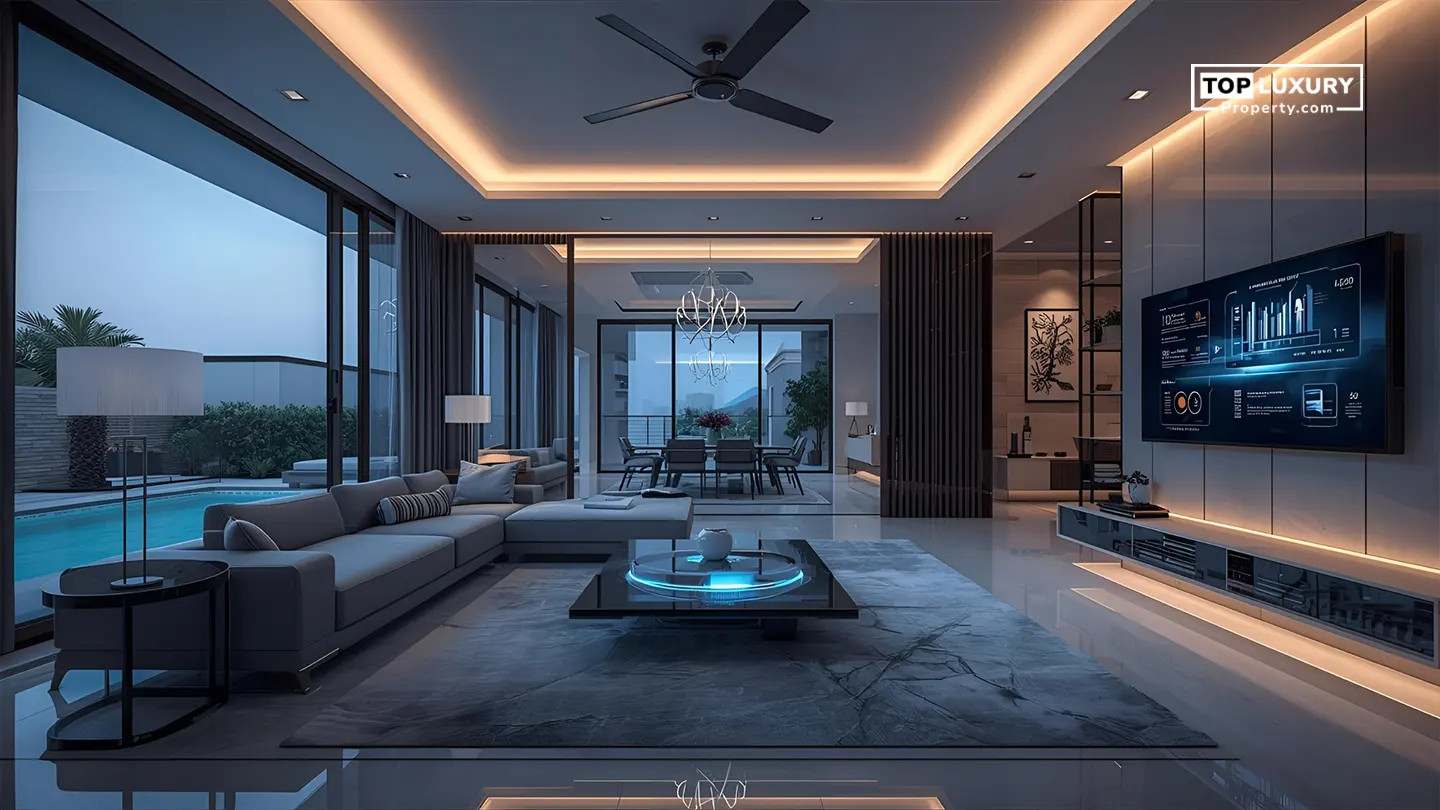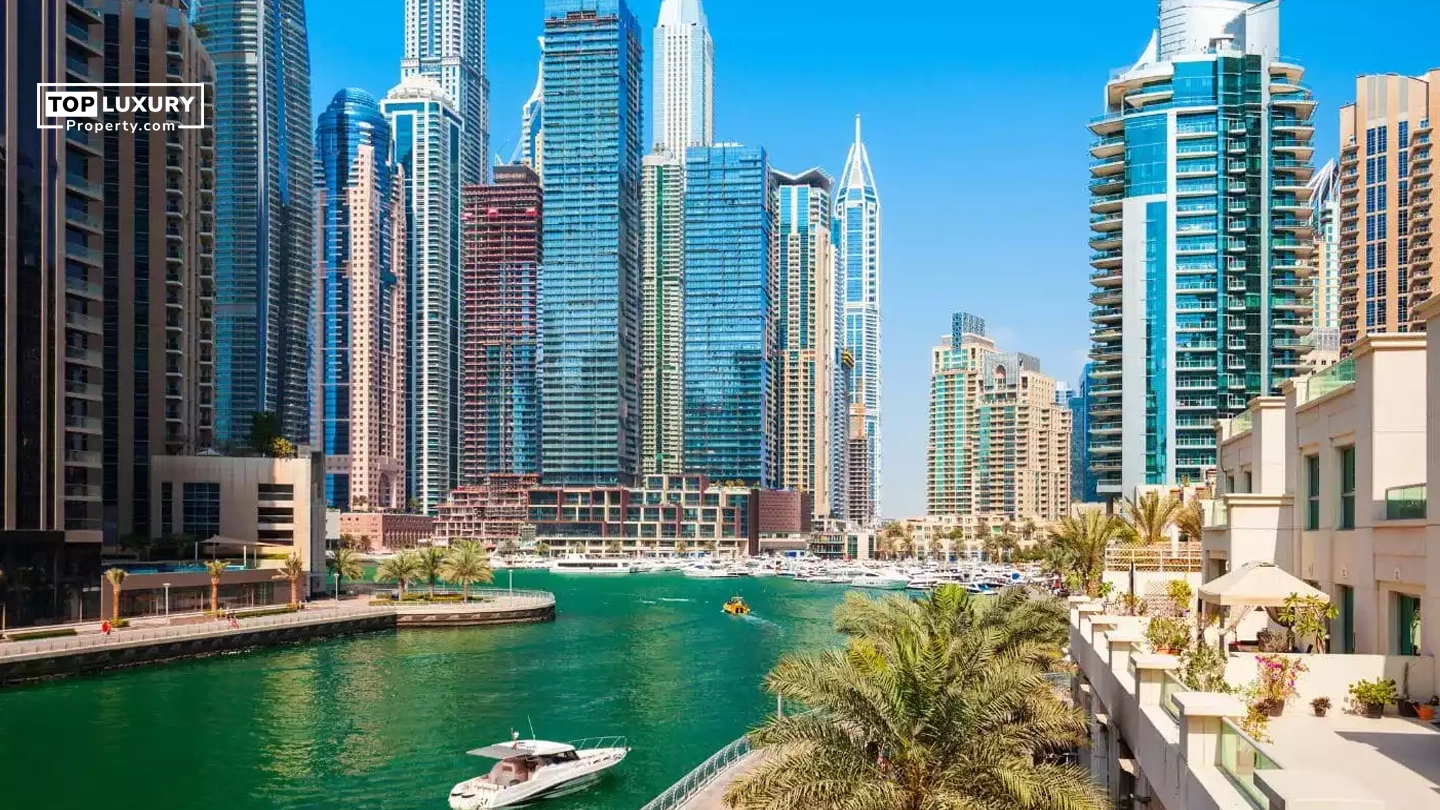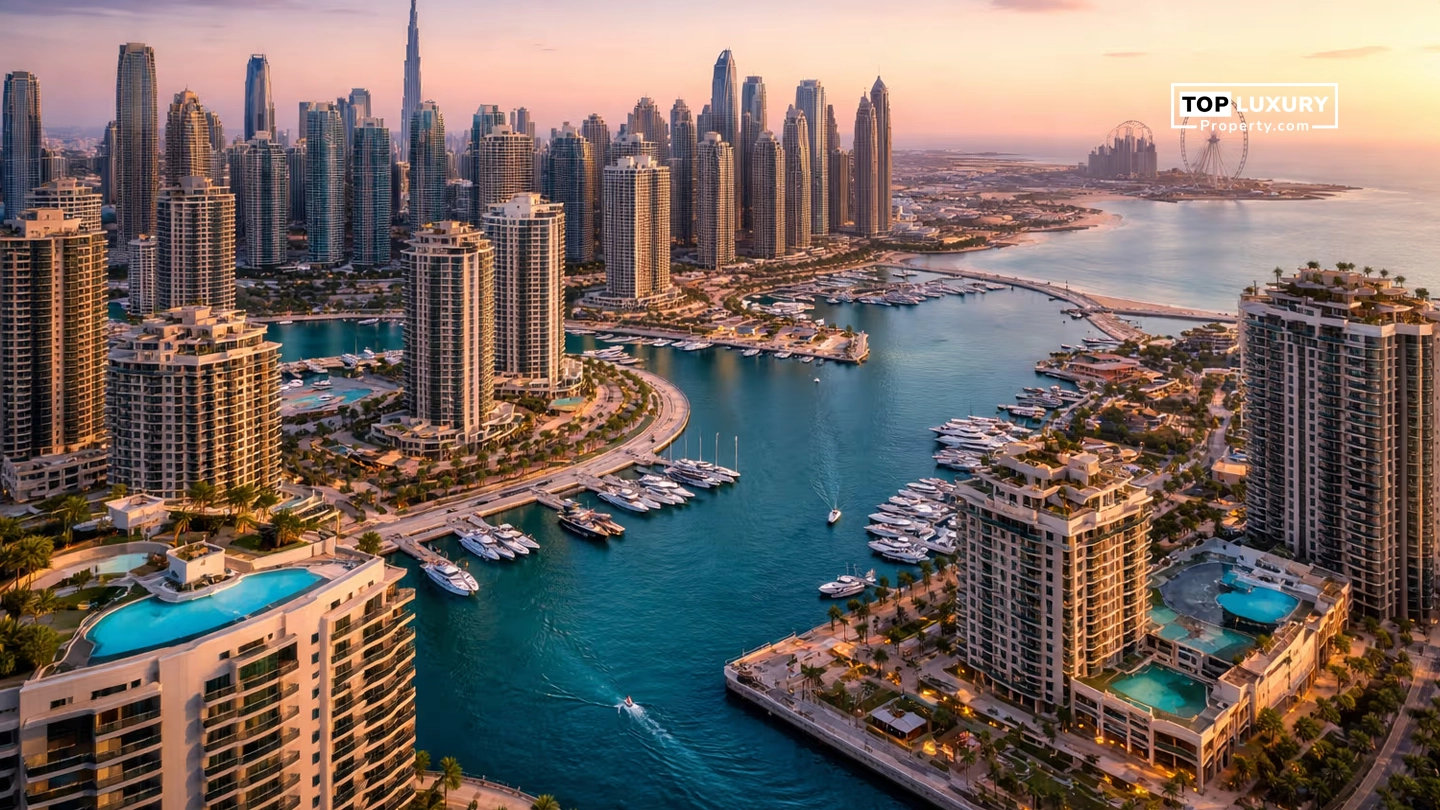What is Smart Home Automation, and How Is It Used in Dubai’s Homes?
Smart Home Automation Dubai refers to the combination of devices and systems, which include lighting, climate control, HVAC, appliances, security, and entertainment intertwined through the Internet of Things (IoT). They are types of systems that enable residents to spy, automate, and manage their homes remotely via smartphones, voice assistants, or centralized hubs.
The automation of Home Automation Dubai is no longer a luxury, as it is becoming a norm in new residential properties. The city has a severe climatic condition, thus the luxury-based lifestyle, and governmental pressure toward digitalization is quickly transforming the lives of people in the city.
The Way Dubai Residents Use Smart Home Technology
- Climate Control: Smart thermostats and zoned AC systems automatically regulate temperatures depending on whether someone is home or not or depending on the outside temperatures. This greatly saves the cost of electricity in the hot summer days of Dubai.
- Lighting: Lighting is an automated system which will switch off when no one is in the room, has daylight sensors and can be timed or voice activated and controlled.
- Security & Surveillance: Cameras can be controlled on apps, smart locks, and facial recognition, allowing round-the-clock surveillance. There is instant notification to the homeowners on the unusual activity.
- Remote Monitoring & Control: AC, lighting, or appliances can be controlled using apps, even when the resident is not in Dubai, which will be ideal in the extensive expat population in Dubai.
- Water and Sustainability Management: This makes use of automated irrigation systems aimed at maximizing the use of water in landscaping and minimizing wastage. This is in line with the green building codes in Dubai.
- AI-Powered Systems: Predictive AI gets to know the habits of residents, such as precooling the villa prior to arrival, turning off lights before bed, or turning on appliances when power is cheap.
- Unified Platforms: Smart assistants such as Alexa or Google home incorporate a variety of systems within a single smooth platform.
Why Dubai?
This revolution is a natural centre of the city. The vision of Smart Dubai actively encourages the use of technologies in Dubai, and the population requires luxury, comfort, and sustainability. By 2022, over 30% of new residential development projects already included smart home features in Dubai, and the figure is projected to grow significantly by 2025.
How Does Smart Home Automation Save Time and Money for Dubai Residents?
- Lower Energy & Utility Bills: Smart thermostats can save as much as 15% on HVAC expenses, and smart lighting can save as much as 30% of electricity. This is thousands of dirhams saved per annum in the climate of the city of Dubai where cooling contributes more than 70 % of household electricity expenses.
- Water Conservation: Intelligent irrigation systems are used to maximize water use in the garden to minimize its wastage. Leak detection systems avoid expensive damages, which save water and repair expenses.
- Lower Costs of Maintenance and Operation: Predictive monitoring detects faults or leaks in HVAC systems early avoiding huge repair costs. Scheduling is automatically done to run systems efficiently and increase their life span.
- Time Saving and Day to Day Convenience: Smartphone or voice controlled AC, lights, and appliances eliminate manual control and allow residents to control devices. Remote access implies that there is no urgency to go home and check on security and turn off appliances. Scheduling schedules repetitive schedules by providing companies more free time to the family.
- Increased Property Value: A 2023 survey revealed that 9 out of 10 UAE residents are ready to pay a premium (c. 2.3 % extra) to it because of smart features in the home. Homes fitted with smart features enjoy more rental advantages particularly to expats and have better resale opportunities.
- Corporate Social Responsibility & Compliance: The green building codes of Dubai promote energy efficiency smart systems. Sustainable properties can enjoy regulatory favors and speedy approvals.
Market Insight
It is reported that more than 40 % of new villas in Dubai will have built-in smart homes by 2025 and accordingly automation is likely to become a norm in high-end and luxury real estate
Top Smart Home Projects in Dubai (2025)
Dubai developers are racing to integrate smart home systems into new projects, making them highly attractive for buyers and investors.
| Project | Location | Smart Features | Starting Price (AED) |
|---|---|---|---|
| Amali Island Villas | The World Islands | Fully integrated smart villas with remote climate, lighting, and security systems. | On Request |
| Al Habtoor Tower | Al Habtoor City | Apartments with app-based lighting, climate, and security controls. | From 2.3M+ |
| Pelagos by IGO | Dubai Marina | Modern apartments featuring AI-powered climate and lighting control. | From 1.2M |
| Woodland Residences / Crest | Meydan District 11 | Smart-ready homes with unified hubs for energy, appliances, and security. | From 2.7M+ |
| Rove Home Dubai Marina | Dubai Marina | Affordable smart apartments targeting younger professionals and expats. | From 1.35M |
Market Insight
Reports suggest that by 2025, over 40% of new villas in Dubai will include integrated smart home systems, making automation an expected standard in luxury and upper-mid properties.
Dubai Smart Home Market Growth: Data & Insights
UAE is one of the most rapidly developing markets of smart homes on the planet. Here’s what the numbers say:
- Market Size (2024): USD 1.41B revenue.
- Projected (2030): USD 6.07B revenue (CAGR ~27.5%).
- MEA Region: USD 2.45B in 2023, at a CAGR 27.7% (2024-2030).
- Consumer Demand: 90 % of the residents of the UAE will be ready to pay higher prices to smart-enabled properties.
- Adoption in New Projects: 30 % of new residential projects in Dubai in 2022 had smart features, which are projected to increase above 40 % in 2025.
- Demographic Insights: The elderly residents are highly interested in video monitoring (56%), voice recognition (50%), and environmental sensors (50%).
These figures prove that Smart Home Systems Dubai is not a fad but a rapidly expanding normal need.
Conclusion
In Dubai, smart home automation has evolved to become more than a luxury addition and is a fundamental element of the property environment of the city in 2025. Since high rises in the Dubai Marina or villas on the Amali Island, smart systems have become a part of the way that homes are being designed and sold.
To the residents, the advantages are obvious:
- Reduced Bills: Up to 30 % electricity saving.
- Time Convenience: Distant and computerized control.
- Better Security and Safety: Enhanced monitoring and control.
- Increased Property Price: Higher rental demand and premiums.
To investors, this would render Smart Home Solutions UAE a viable future-proof asset type. As the market revenues are expected to increase four times by 2030, the following years will witness a further growth of automation that will be applied not only to luxury villas but also to mid-range houses to make sure that more people use them.
To live smarter, to save money, and to create sustainable value: smart homes do not only represent living in a more comfortable way in a city of innovation, but of living smarter.







